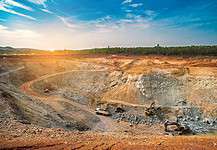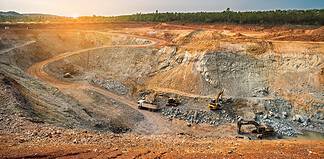 THE much-maligned mining tax has finally been axed after the Coalition Government cut a deal with Clive Palmer to fulfil its remaining major election promise.
THE much-maligned mining tax has finally been axed after the Coalition Government cut a deal with Clive Palmer to fulfil its remaining major election promise.
Repeal of Labor’s Mineral Resources Rent Tax (MRRT) passed the Senate this month after it was knocked down in July over Palmer United Party (PUP) amendments to save associated spending measures.
Under the deal with the PUP, the Government agreed to delay the abolition date on key measures in the legislation until after the next election.
The Low Income Superannuation Contribution will be abolished from 1 July 2017, while the Income Support Bonus and Schoolkids Bonus will be axed from the end of 2016. The Schoolkids Bonus will be means-tested until its abolition.
To cover the cost of the measures, the Government will delay superannuation contribution increases to July 2021, freezing compulsory superannuation payments at 9.5 per cent. Under Labor legislation, the superannuation guarantee rate was to rise to 12 per cent by 2019.
Treasurer Joe Hockey said the repeal marked the end of a “long and sorry saga” for the Australian mining industry. “To have a mining tax that did so much reputational damage to Australia and at the end of the day combined with the spending measures, left the Budget significantly worse off,” he said.
“It has been a dead hand on the mining
industry.”
According to the Treasurer, the amended repeal will cost the budget about $6.5 billion over the next four years, which would be recovered by delaying the superannuation increase.
Over the next decade the budget will be $50 billion better off, he said. Finance minister Mathias Cormann said the deal was not the Coalition’s preferred plan, but it was the best it could get.
“The alternative was for the mining tax to continue to remain in place and hold Australia back when it comes to generating stronger growth to create more jobs,” he said.
“So we went for the best possible deal that we could achieve in the national interest.”
Mr Hockey blamed Labor for the deal’s impact on superannuation, accusing the Opposition of not letting the Government keep its promises.
Labor accused Tony Abbott of breaking his election promise not to touch superannuation.
“The Prime Minister cares more about sneaky backroom deals than the retirement incomes of millions of people,” Labor Treasury spokesman Chris Bowen said.
PUP Senate leader Glenn Lazarus described the tax as “unjust, unfair and unnecessary”.
“This tax is hurting investment in Australia and diminishing our competitiveness on the world stage,” he said.
“The Palmer United Party has always supported the removal of the mining tax, but we would not allow the tax to be removed unless key elements – including the school kids bonus, the low income super contribution and the low income support bonus – were retained.”
Greens leader Christine Milne said the deal between the Government and the PUP was a conflict of interest, given Mr Palmer’s
mining background.
“This is exactly what the Australian people were concerned about – the prospect of a mining billionaire coming in here and changing the law to facilitate a benefit to the big miners at the expense of ordinary working Australians,” she said.
“We should be raising money from the big miners in order to put it into health and education and benefits.” The repeal was widely welcomed in the industry.
Fortescue Metals Group chief executive Nev Power said the repeal was a sign Australia was open for business and serious about encouraging mining development and investment.
“The Minerals Resource Rent Tax was a bad piece of legislation that was poorly designed, it targeted the wrong part of the economy and was introduced without consulting the industry,” he said.
Minerals Council of Australia chief executive Brendan Pearson said the repeal was a major step towards Australia reclaiming its status as a globally competitive producer and attractive destination for mining investment.
Chamber of Minerals and Energy of Western Australia chief executive Reg Howard-Smith said the removal of unnecessary taxes would assist the resources sector to become more internationally competitive.
“The MRRT has been both inefficient and ineffective while adding a significant compliance and regulatory burden to industry,” he said.
Business Council of Australia chief executive Jennifer Westacott said the tax had acted as a disincentive to invest in Australia’s minerals sector at a time when the industry is facing pressing challenges to improve productivity and cost competitiveness
“The mining industry is, and will continue to be, a core part of Australia’s economic future…we need to make sure that governments do not put up barriers in the way of its ongoing success,” she said.
“It is disappointing that some of the provisions in the legislation still act as a burden on Australia’s already unsustainable medium-term fiscal position.”











































